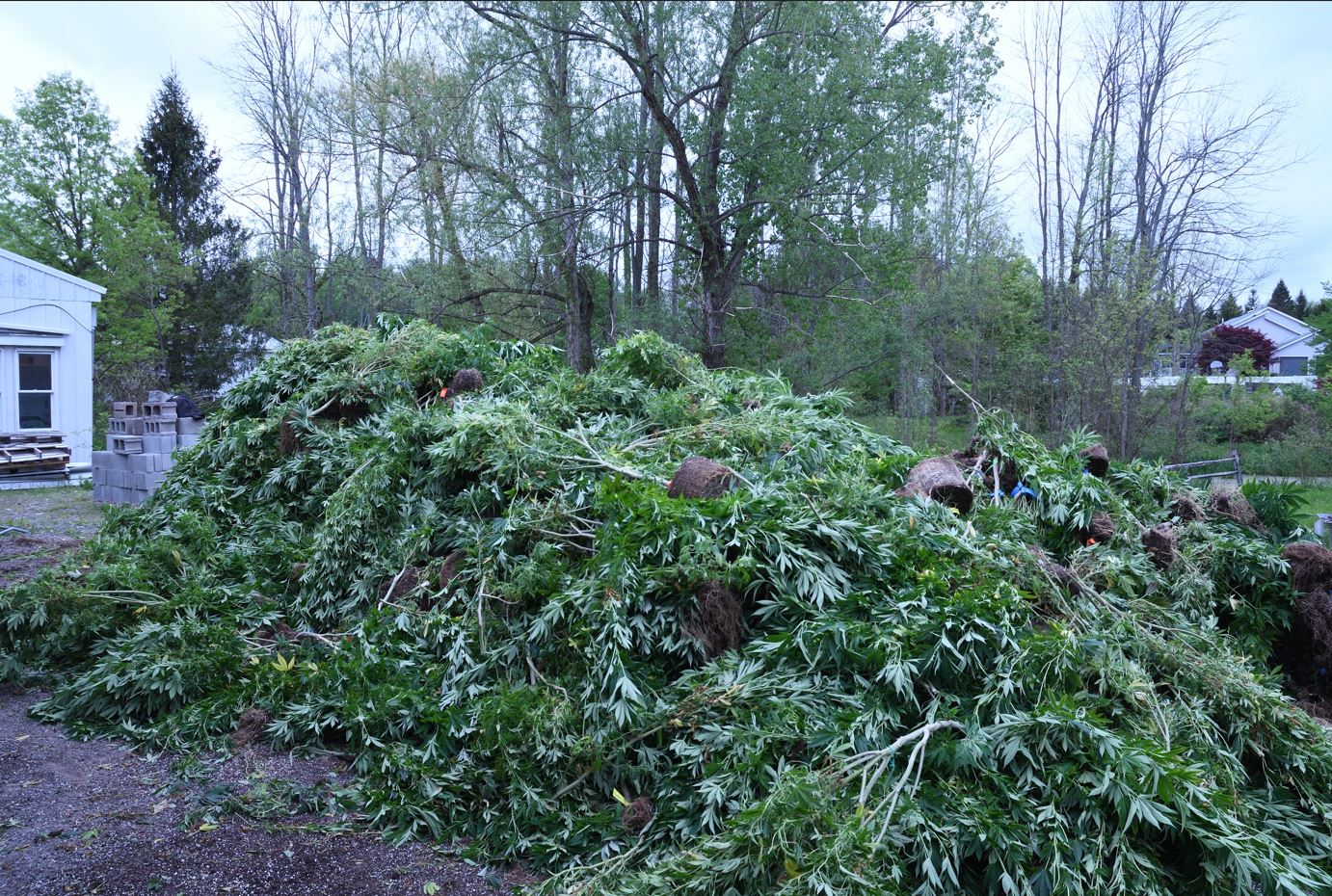Green Card Holder ICE Release: California Woman Freed!
California Green Card Holder Freed from ICE Custody: A Second Chance?
Introduction: A Breath of Relief in the Golden State
Imagine being detained at an airport after returning home, even with a valid green card. That's what happened to Cliona Ward, a long-time resident of Santa Cruz, California. But thankfully, this story has a brighter ending. Ward, an Irish native and legal green card holder, was recently released from ICE custody after being detained at San Francisco International Airport. It's a tale of legal complexities, past mistakes, and the hope for a future free from the shadow of past transgressions.
Who is Cliona Ward? More Than Just a Green Card Holder
Cliona Ward isn't just a name on a legal document. She's a woman who has called Santa Cruz home for over 30 years. Think about it – that's a lifetime for some! Originally from Ireland, she built a life in California, contributing to her community and enjoying the freedoms that come with legal residency. Her green card, valid until 2033, seemed to guarantee her continued right to live and work in the United States. So, what went wrong?
The Unexpected Detainment: SFO Turns into a Detention Center
Returning to the US should have been a simple formality. But upon arrival at San Francisco International Airport (SFO), Ward's journey took an unexpected and frightening turn. She was detained by customs officers, throwing her future into uncertainty. Can you imagine the fear and confusion? The feeling of being trapped in a bureaucratic nightmare?
The Ghosts of the Past: Unearthing the Criminal Record
The reason for Ward's detention lies in her past. Between 2003 and 2008, she accumulated a criminal record involving drug possession and theft. These weren't major offenses – misdemeanors and felonies – but they were enough to raise red flags with federal authorities. Even if the slate was wiped clean in California, they still haunted her on a federal level. Is it fair that past mistakes can jeopardize a person's future, even after they've seemingly paid their dues?
California's Fresh Start: The Power of Expungement
Understanding Expungement in California
California law allows individuals with criminal records to petition the court for expungement. Expungement essentially allows a person to have their criminal record sealed or erased from public view. It's like hitting a reset button, giving people a second chance to move on with their lives without the constant burden of their past. But the key phrase here is "public view."
The Federal Catch: Expungement Doesn't Always Mean Forgiveness
While California expunged Ward's records, this didn't extend to the federal level. This is where the legal complexities kick in. Federal immigration authorities can still access these records, even if they've been expunged at the state level. It highlights the difference between state and federal laws and the potential pitfalls for immigrants with prior convictions.
Congressman Panetta's Intervention: A Beacon of Hope
In times of crisis, having someone advocate for you can make all the difference. Fortunately, Congressman Jimmy Panetta's office stepped in to assist Ward. According to his office, a judge granted Ward's release on Wednesday, bringing an end to her detention. This highlights the importance of having political representation and the power of advocacy in navigating the complex legal system.
The Judge's Decision: Weighing the Factors
What led the judge to grant Ward's release? It's likely a combination of factors, including:
- The age of the offenses: Were these recent or did they occur a long time ago?
- The severity of the offenses: Were they serious crimes or relatively minor infractions?
- Ward's contributions to the community: Has she been a productive and law-abiding member of society?
- The impact on her life: Would deportation cause undue hardship for her and her family?
These are just some of the questions the judge likely considered before making a decision. Ultimately, the judge must weigh the government's interest in enforcing immigration laws against the individual's right to due process and the potential for rehabilitation.
The Future for Cliona Ward: Moving Forward with Caution
While Ward has been released, her legal battles may not be over. She will likely need to continue to navigate the complexities of immigration law to ensure her continued legal status in the United States. This could involve seeking legal counsel, providing evidence of her rehabilitation, and potentially facing further scrutiny from immigration authorities.
Green Card Holders and Criminal Records: A Precarious Position
Ward's case highlights the precarious position of green card holders with criminal records. Even minor offenses can jeopardize their legal status and lead to deportation proceedings. It's a stark reminder that living in the United States as a green card holder comes with responsibilities and the need to adhere to the law. Are you aware of the laws of this country and how they could affect your immigrant status?
The Importance of Legal Representation: Navigating the Labyrinth
Immigration law is a complex and ever-changing field. Having experienced legal representation is crucial for anyone facing immigration challenges, especially those with prior criminal records. An attorney can help individuals understand their rights, navigate the legal system, and build a strong defense against deportation.
Beyond the Headlines: The Human Cost of Immigration Policies
Behind every headline about immigration enforcement lies a human story. Ward's case is a reminder of the human cost of immigration policies and the impact on individuals and families. It's a story about second chances, the complexities of the legal system, and the enduring hope for a brighter future. It's easy to forget the human element when discussing policy, but it is imperative that we remain aware of the human effect.
A Call for Compassion: Balancing Justice with Humanity
Cases like Ward's raise important questions about how we balance justice with humanity. Should past mistakes forever define a person's future? Should we prioritize deportation over rehabilitation? These are questions that require careful consideration and a compassionate approach. There is always room for justice and mercy to work together.
The Bigger Picture: Immigration Reform and the Pursuit of Justice
Ward's story is just one example of the many challenges facing immigrants in the United States. It underscores the need for comprehensive immigration reform that addresses the root causes of immigration, provides pathways to legal status for undocumented immigrants, and ensures that our immigration laws are fair, just, and humane.
Conclusion: Hope and a Reminder
Cliona Ward's release from ICE custody offers a glimmer of hope and a reminder of the complexities surrounding immigration law. Her case serves as a potent example of how past mistakes can impact a person's present and future, even after expungement. Ultimately, it highlights the necessity of legal representation, the importance of compassionate policies, and the ongoing need for immigration reform.
Frequently Asked Questions (FAQs)
Here are some common questions related to this situation:
- Can a green card holder be deported for a past criminal record?
Yes, even with a valid green card, a person can face deportation proceedings based on a criminal record, even if the offenses occurred many years ago. Certain types of crimes are considered deportable offenses under federal law.
- Does expungement of a criminal record prevent deportation?
Not always. While expungement can help in some cases, federal immigration authorities may still be able to access and consider the underlying criminal record when making deportation decisions. It depends on the specific circumstances and the applicable laws.
- What factors do immigration judges consider in deportation cases?
Immigration judges consider a variety of factors, including the severity of the crime, the length of time since the offense, the individual's rehabilitation efforts, their family ties in the United States, and the potential hardship they would face if deported.
- What can a green card holder do to protect themselves if they have a prior criminal record?
It is crucial to consult with an experienced immigration attorney. They can assess your individual situation, advise you on your rights and options, and help you prepare a strong defense against deportation.
- What is the role of a Congressman in an immigration case?
A Congressman's office can often assist constituents with navigating federal agencies, including ICE. They can inquire about the status of a case, advocate on behalf of the individual, and help connect them with legal resources. However, they cannot guarantee a specific outcome.

